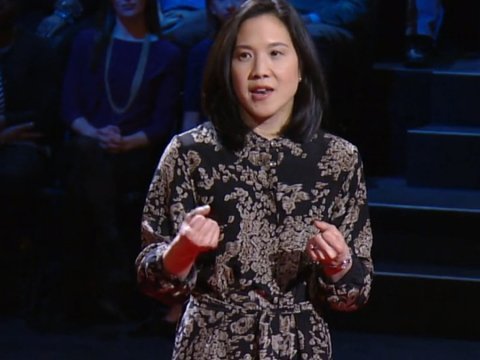Clayton Christensen's Personal Quest To Help You Measure Your Life
Rich Hua stashed this in The Meaning of Life
Stashed in: #happiness, Character, Luck!, Motivation, Influence!, Life, Culture, Decisions, Relationships, Be yourself., Management, Awesome, Jobs, Values, Becoming, Relationships, Favorites, Spirituality, Personal Evolution
Life is mostly how we react to things:
It’s one thing to say that life happens to you, and so some people will end up unhappy and some will be happy and it's just the luck of the draw. I actually don't think that that's true. Things happen to us in unpredictable ways, but the effect that that has on the kind of people who we become actually is not only open to chance--we can influence it in pretty profound ways.
Choose your values and that will determine how you react to things that happen to you:
I believe that we can, in a deliberate way, articulate the kind of people we want to become. We can articulate the culture that we would want to exist in our family, and you can then, as the rest of life happens to you, you can utilize those things to help you become the kind of person you want to be.
Life is like business:
You have businesses, just like IBM has a bunch of different businesses that they're engaged in. Through a resource-allocation process, you decide how much goes to this business, how much goes to that business. You have businesses in your life: family, relationships, career. And you have to decide how do you allocate your resources. If you decide, "I'm going stay at work another hour," you allocate energy and time and talent to your career that you won't spend with your kids; that's a resource-allocation process. That criteria that we employ is scarily, frightfully consistent up and down. That is--in all these businesses, the one that will get prioritized is the one that pays off the fastest.
We decry how businesses always are short-term oriented, and we know that they should invest for the long term, but man, none of them are able to do that on a consistent basis. And the reason is that they're run by people like you and me, and almost all of us have this need of achievement. And so when you have an extra ounce of time, an ounce of energy, if you spend that time on your career--you finish an article, you ship a product, you close a deal, you finish a presentation, you get promoted, you get paid. Our careers provide immediate evidence that you've achieved something.
But the kids, they misbehave every day. It’s not until much later when you can say, “Spence, [my son], is 24. And boy, he’s a good man.” But on a day-to-day basis, it's a long-term investment that you have to make.
Keep the big picture in mind to make decisions consciously:
The most important answer is just to understand how this works inside of ourselves--whether we're looking at managing our careers or managing our family or managing our company. Understanding how things work and why they work the way they work allows you then to make conscious decisions about this. If you don't understand this, then you just do what makes sense at the time and that causes you to end up in a different place than you want.
Find work that is fulfilling:
http://www.fastcompany.com/1836982/clayton-christensen-on-how-to-find-work-that-you-love
Nice point! Daniel Pink says something very similar when he breaks down our most fundamental human drives into three things: 1) autonomy, 2) mastery, and 3) purpose. He explains these concepts nicely in a WSJ interview.
http://online.wsj.com/article/SB10001424052748704152804574628230428869074.html











9:11 PM Jul 01 2013